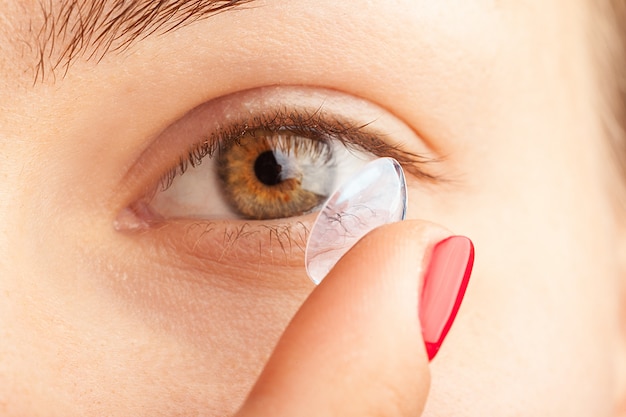Contact lenses are a widely used form of eyewear all over the world. Some people use contact lenses for corrective vision, while others use them for aesthetic purposes. Well, whatever be the reason, you may be surprised to know that contact lenses pose an immense threat to the environment. Undoubtedly, when compared to prescription glasses, disposable lenses are more convenient, cheaper, and suitable for people.
But one cannot ignore the significant disadvantages of contact lenses when it comes to the environment.
So, how does contact lens affect the environment?
Read this post to know how your contact lenses affect the environment adversely and the alternative to lenses.
Impact of Disposable Contact Lenses on the Environment
Disposable contact lenses are made up of plastic. And we all know how harmful plastic is to our environment. Of course, you can argue that disposable contact lenses are too tiny to pose any threat. But that’s not the case at all. Despite being too small in size, contact lenses have a harmful influence on the environment, similar to plastic bags.
Contact lenses are a significant contributor to plastic pollution, which finds its way into our food, drinking water, and our bodies through ingestion. In addition to birth abnormalities and diseases such as cancer, plastic particles have been connected to thousands of marine animal deaths and the devastation of ecosystems around the world.
Disposable lenses last anywhere from a day to a month, depending on how often you use them. Many people flush their single-use lenses down the toilet on a daily basis. According to statistics, at least 20% of contact lens wearers dump their disposable contact lenses down the toilet when they’re of no use. There is no such thing as biodegradable contacts.
So, what happens to contact lenses after flushing out in the toilet?
Contact lenses that end up in wastewater treatment facilities are typically broken down into microscopic micro plastic particles. It is common for micro plastics to make their way into lakes and oceans, posing a threat to marine organisms and depleting the ecosystem’s resources.
Often, wastewater treatment plants route water through microorganism-filled holding tanks that feed on and remove organic and solid pollutants.
Researchers say these lenses very marginally degrade before being released from treatment facilities and are otherwise practically intact. Because they are so tiny, difficult to collect, and non-biodegradable, they often get into our water treatment plants, contaminating lakes, oceans, and soil, disrupting natural ecosystems.
Can Contact Lenses be Recycled?
The quick answer to it is ‘NO,’ not always!
In addition to not being compostable, disposable contact lenses are also not recyclable through the standard recycling routes.
Many contact lenses are constructed using recyclable materials, making them recyclable; however, it is difficult to recycle them due to their tiny size. That’s the reason they are dumped in a landfill without being recycled in most cases.
Of course, we all should be very careful about our environment and contribute to it by doing good deeds. We all should always use environment-friendly alternatives for a more sustainable future. And contact lenses are not at all environment friendly.
So, what’s the solution?
There are several recycling ways you can use to reduce the environmental effect of contact lenses. But, not everybody always has access to such facilities. Lasik eye surgery in Delhi is considered the best alternative to contact lenses in such a situation.
Lasik surgery is a permanent solution that helps people to get rid of contact lenses. Also, LASIK has a longer shelf life than disposable lenses, making it more environment-friendly. Moreover, LASIK or Advanced LASIK surgery can drastically reduce global single-use plastic pollution caused due to contact lenses.
Is Lasik Eye Surgery good for the environment compared to contact lenses?
LASIK or Lasik (laser-assisted in situ keratomileusis), is a kind of refractive surgery that is used to address nearsightedness (myopia), farsightedness (hyperopia), and astigmatism. LASIK eye surgery is performed on the cornea to correct refractive errors.
Eye surgeons use a laser or a microkeratome to sculpt the cornea of the patient’s eye in order to improve visual acuity. Laser vision correction is a long-term alternative to contact lenses, making it the most environment-friendly option. Having LASIK eye surgery in Delhi reduces single-use plastic pollution caused by disposable contact lenses. With more and more people opting for Lasik, it has become the world’s most popular laser vision correction procedure. Along with improving vision, LASIK surgery positively influences the environment, making people’s lives better and healthier.
Lasik surgery specialists will examine your eyes first to establish if you are a suitable candidate for Lasik. Following that, LASIK eye surgery will be performed to remove your contact lenses permanently!















